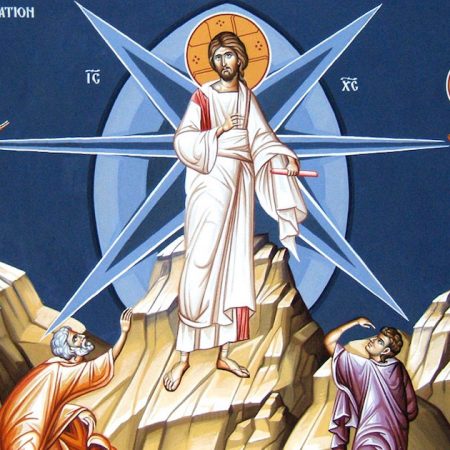Jesus does not burden us with crippling moral expectations, but humbly takes our burdens on himself and frees us to relax into the life of God.
Sermons on Matthew (Page 6)
As we gather with the saints of all times to worship the crucified victim, we are immersed in a culture that is so at odds with the values of this world that those who truly embrace it just appear odd for now, but strangely and alluringly familiar too.
We are invited to work towards visions of God’s reign, knowing we will never be entirely successful, but sustained by imagining the possibilities.
There are many stories in the Bible that can appear to portray God as involved in terrorist acts, but Jesus invites us to read them in new ways.
We pray for our neighbours to be blessed, but could we actually be being called to give a blessing?
God’s grace is so extravagant that it will offend us as long as we are measuring our worth in comparison to others.
What would happen if violence were met with bread, with blankets, with hospitals, with forgiveness of debts?
Christ is present to us in love, unity and reconciliation, and thus these are essential to our worship.
Faith is a gift created in us as Jesus shows us that the pathway of courageous love and self-sacrifice is not impossible to walk.
There is nothing we can do to earn God’s presence or God’s blessing or God’s love, but when we let down our defences, when we give up striving, when we are vulnerable, then who knows what might happen?
God does not judge people’s capacity to respond and focus love and care only on the productive, but gives gifts with wanton freedom and extravagance and calls us to do the same.
Trying to establish our own righteousness burdens us with divisiveness and hostility, but Jesus offers us rest and freedom.
God and religion misunderstood can be the cause of hostility, division and violence, but the God made known to us in Jesus is a God of grace who generously gives us life, freedom and reconciliation.
Jesus calls us to give up the illusion that we own God’s blessing, invite others in, and be despised for doing so, giving up our privileges to build a world that all can share.
The message of Easter was that the disciples would find Jesus – not at the empty tomb – but going ahead of them into Galilee – on the mission field.
The stories of Moses, Elijah and Jesus on various mountain tops reveals a process of God’s self-revelation as the one who loves us and suffers for us.
Jesus calls us to model ourselves on him to embrace a new pattern of full humanity rather than just constrain the worst excesses of an old failed humanity.
The righteousness give to us in Christ, and which we grow into in our following of him, fulfils and exceeds the trajectory set by the biblical law and prophets.
Jesus honours, commends and models a set of attitudes, or stances toward the world, which can and will change the world, but embracing them is no small challenge.
The “fishing for people” to which we are called is not about being pushy and manipulative marketers, but being open and generous in our sharing of the light that has brought us life and healing.

